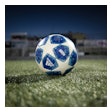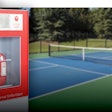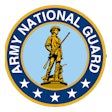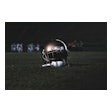Copyright 2018 The Florida Times-Union
Florida Times-Union (Jacksonville)
Ribault sophomore wide receiver/cornerback Justin McWilliams considers himself a fearless competitor on the football field.
Last month, he bragged about an encounter he had on the practice field last season against 6-foot-3, 260-pound offensive lineman teammate Salik McCrae, who sent him sailing to the ground after a hard block.
McWilliams said he immediately rose to his feet to engage in more contact to show his coaches he wasn't scared.
McWilliams acknowledges that the risk of sustaining a concussion while playing football "is scary. Having a real bad concussion can end your career. But I'm trying to get a scholarship to any school possible. It only takes one offer, one scholarship.''
Though McWilliams says he has never sustained a concussion playing football, 45 Duval County public high school football players were diagnosed with concussions last season, according to the Jacksonville Sports Medicine Program, which services 12 of the 17 schools in the county with five full-time certified trainers and seven graduate assistant trainers.
At St. Johns County's six public high schools, 103 athletes from all their sports teams were treated for concussions during the 2016-17 school year, according to county Athletic Director Paul Abbatinozzi. His data did not indicate how many were attributed to football.
According to a 2015 study by the Indianapolis-based Datalys Center, high school football has a higher concussion rate than college or youth football. The study also said 58 percent of concussions in high school football occur during practice.
"I started playing football when I was 9 years old,'' says Ribault's McWilliams. "If I had known all the stuff I know now about concussions, I probably would have stopped playing. Every hit you take, every hit you do -- that's messing up your brain. The best way to do it is don't use your head to tackle.''
Limits During Practice
To improve football safety, the Florida High School Athletic Association established new rules in 2016 to limit live contact practice to 40 minutes per day in the preseason, and no more than 30 minutes per day and 80 minutes during the week during the regular season.
"The game of football will always come with some inherent risk, but we will never stop working to try and make one of the greatest team sports on Earth safer," FHSAA Football Administrator Frank Beasley said in a statement. "We will continue our efforts to educate and teach coaches about how to run effective practices while using the limited-contact procedures.''
Ed White coach Kevin Sullivan said education and careful observation are critical elements in evaluating a possible head injury, adding that players need to be vigilant for teammates.
"One thing we've got to do a good job of is making the kids aware of it (concussions),'' said Sullivan, a high school football coach on the First Coast for 27 years. "We had a kid one year get in the huddle and he was concussed. One of the kids came out after the play was over and told me you've got to get him out, he doesn't know where he's at.
"Sometimes you will hear a big loud hit and a kid will get up with no ramifications but because of the way the brain moves into the head he may still be impacted. I think you have to do a good job of seeing it. The kids that are more apt to be fighting through pain and going full bore 100 miles an hour are the ones you have to worry about. You have to do a good job of knowing your kids and watching their body language.''
'They Just Don't Have the Money'
Unlike the NFL and college football, high school programs in Florida are not required to have a certified trainer available for all sporting events, including practices, though the FHSAA recommends it. Justin Harrison, the FHSAA's associate executive director for Athletic Services, who oversees the Association's Sports Medicine Advisory committee, questions whether there are enough certified trainers to go around.
"There are over 700 schools in the state of Florida," Harrison said. "Are there enough with 500 games going on? Those are the challenges.''
Most of the school districts in the state's major cities have full-time trainers at its public high schools. Marisa Brunett, district director for the Southeast Athletic Trainers Association, said each public high school in Orlando has two certified trainers on staff.
''There are a couple of large school districts in Florida that have had athletic trainers for over 30 years,'' Brunett said. ''You can't put a cost on a student-athlete life. But when we do go into some of the other districts, the No. 1 issue that we're always presented with is that they just don't have the money to provide an athletic trainer at their high schools.''
If a school doesn't have a certified trainer, it is the coach's responsibility to identify concussion symptoms and take responsive action. During games, a referee also can remove a player if an athlete is displaying symptoms.
Twelve Duval County public high schools have taken advantage of Jacksonville Sports Medicine Program's Project 17 initiative. The project, which cost $1.5 million in 2016 and is funded by the Jacksonville Jaguars, the NFL, Brooks Rehabilitation, Florida Blue and Memorial Hospital, provides full-time certified trainers at five local high schools and graduate assistant trainers at seven others.
Raines, Ribault, Baldwin Middle-Senior, Englewood and Jackson all have full-time certified trainers. Westside, Parker, Lee, First Coast, Stanton, Wolfson and Ed White have graduate assistant trainers. Paxon, Sandalwood and Mandarin are expected to join the program in 2018-19. Fletcher and Atlantic Coast will join in 2019-20.
Bob Sefcik, executive director of the Jacksonville Sports Medicine Program, said the five schools without trainers for the 2017-18 school year receive athletic trainer support from community partners in Duval County.
All six public high schools in St. Johns County have a full-time certified trainer on staff and a spokesperson for the Clay County Public Schools said they have a working agreement with St. Vincent's HealthCare and Preferred Physical Therapy to supply trainers.
"I don't think any high school should not have an athletic trainer,'' said Tatiana Burrough, a certified athletic trainer who has been working at Ribault High School since July.
"We're able to recognize certain things that coaches can't. I'm the one who teaches them what a concussion is and what are the signs and symptoms so they'll know what to tell me or if they see their teammate displaying some of the same symptoms.''
Burrough says she has the final say whether an athlete returns to play from a concussion or any other injury.
"It really takes a load off the coaches and it's good to have somebody trained to do that,'' said Sullivan, who coached at Jackson High from 1998 to 2010 before moving to Atlantic Coast and now Ed White. "The years I was at Jackson, I was the head coach and athletic trainer, so I had to do everything. Of course, the concussion stuff wasn't as prevalent and up front as it is now.''
Read the rest of this Times-Union Special Report to learn more about concussions at other levels of football:
• Progress on concussions in football slowed by system failures, lack of resources and resistance to change
• At colleges, resources impact commitment on concussions
• NFL's efforts to address concussions sometimes fail on the field
Read More of Today's AB Headlines
Subscribe to Our Daily E-Newsletter
Terms and Conditions Privacy Policy































